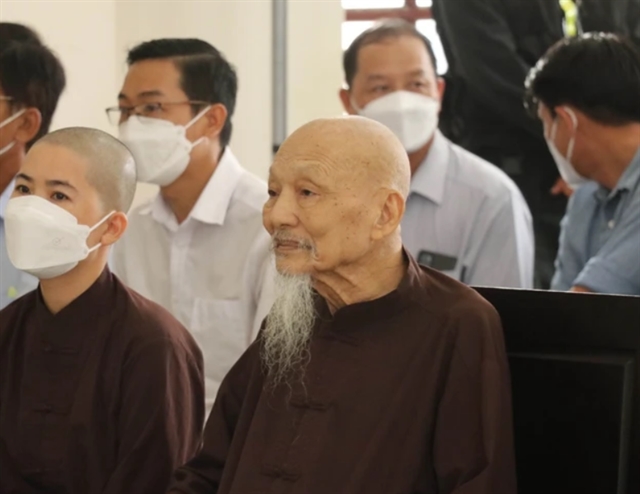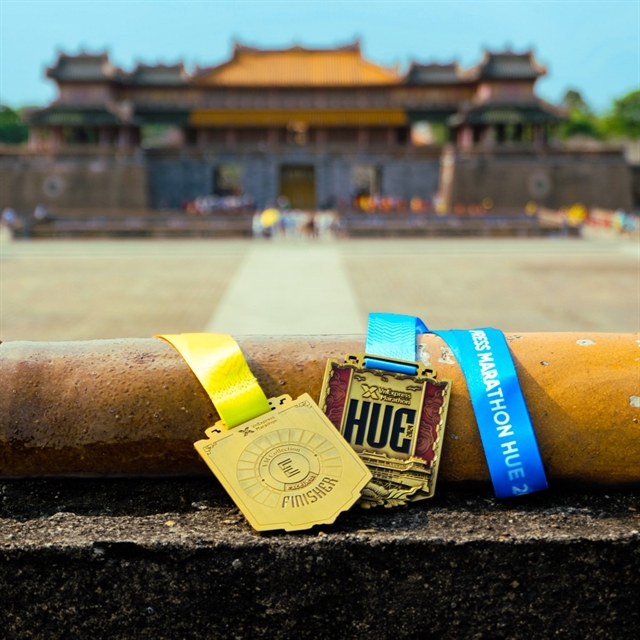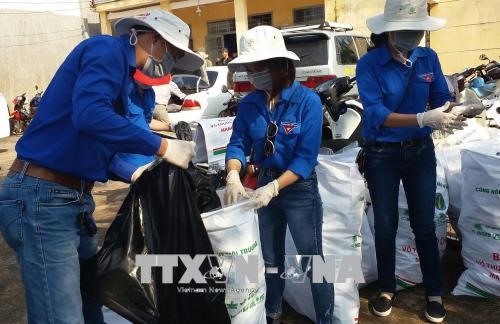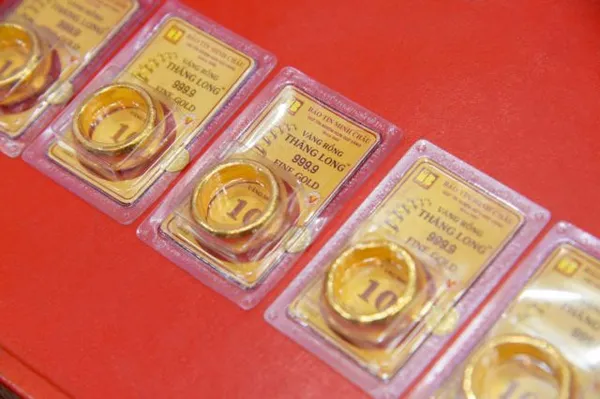 Society
Society

Hundreds of thousands of farmers in the 22 provinces and cities from the south-central province of Bình Thuận to the southernmost province of Cà Mau have been provided guidance in the safe use of plant protection chemicals through a programme begun in 2012.
 |
| Volunteers collect discarded plant protection chemicals packaging in Bà Rịa – Vũng Tàu Province’s Châu Đức District. - VNA/VNS Photo Hoàng Nhị |
HCM CITY – Hundreds of thousands of farmers in the 22 provinces and cities from the south-central province of Bình Thuận to the southernmost province of Cà Mau have been provided guidance in the safe use of plant protection chemicals through a programme begun in 2012.
“Together with farmers in protecting the environment”, carried out by the An Giang Plant Protection Company (now the Lộc Trời Group) and the Plant Protection Department, has provided training to 626,000 farmers and nearly 5,000 students in safely using the chemicals and collecting and destroying their used packages and bottles.
The farmers have also been taught about various pests and methods to control them.
The programme has established 149 model farms with a total area of 8,500ha for farmers to visit and study. They produce rice, dragon fruit, green-peel and pink-flesh grapefruits, mango, milk apple, longan, sweet potato, and other crops.
Farmers have been taught to grow flowers around paddy fields to protect their rice plants by attracting insects, which are natural enemies of brown plant hoppers.
The 22 provinces and cities have built 700 containers to contain hazardous wastes and collected 38.5 tonnes of packaging and bottles left after the plant protection chemicals were used.
The programme has attracted the participation of 18 companies that trade these chemicals.
Speaking at a seminar held to review the programme in Bà Rịa – Vũng Tàu last week, Lê Văn Thiệt, deputy head of the Plant Protection Department, said the agriculture ministry has ordered competent agencies to ensure the programme is implemented well.
To expand the programme and publicise it, his department would encourage more agricultural inputs trading companies to co-operate with competent agencies, he said.
Besides protecting the environment, the programme has helped farmers reduce costs by reducing the use of plant protection chemicals and produce quality agricultural products.
Đặng Mạnh Khương, secretary of the programme, said workers are hired to spray pesticides to protect crops, but they fail to protect the environment or themselves.
So the programme has set up 10 clubs for 100 people who spray pesticides in the Cửu Long (Mekong) Delta provinces of Long An, Đồng Tháp, An Giang, and Bạc Liêu.
They have been instructed in safe use of pesticides and provided with protective gear to safeguard their health, he said.
The programme has also given them regular health checks.
It has raised farmers’ awareness of environmental protection, according to the department.
It has helped change farmers’ habit of, after using plant protection chemicals, throwing their empty packaging and bottles in fields and canals, which severely pollute the environment and water resources. — VNS









